nai010 publishers posits 'It’s About Time' for architects to drive sustainable changes
by Almas SadiqueFeb 14, 2025
•make your fridays matter with a well-read weekend
by Mrinmayee BhootPublished on : Jul 08, 2024
The Strategic Vision 2024-2030 plan released by the ICLEI – Local Governments for Sustainability during its recently concluded biannual World Congress begins with asserting “the urgent need for decisive action across all levels of government to foster resilience, address systemic inequities and harness innovation.” The document sets out the six-year plan for climate resilience drawn up by the global network working with more than 2500 local and regional governments committed to sustainable urban development and driving local action. In the face of multiple climate crises only exacerbated by the loss of biodiversity—which we are falling short of combatting—the document highlights the need for collaboration and the power of knowledge-sharing.
To this end, from June 18 – 21, 2024, over 1,500 urban leaders from 96 countries convened to address critical issues on climate action and urban resilience at the World Congress, setting the stage for the COP30 in Belém, Brazil in 2025 and for Brazil to officially assume the presidency of the G20. Addressing critical issues threatening urban centres and the role of local climate and resilience action, multilevel governance, initiatives in São Paulo and the unique role of the Amazon region for sustainability, the aim of the World Congress—the main event of the São Paulo Urban Summit—hosted by the city, was to gather various stakeholders and experts in urban design and policy to focus on advancing sustainable growth for local and regional challenges.
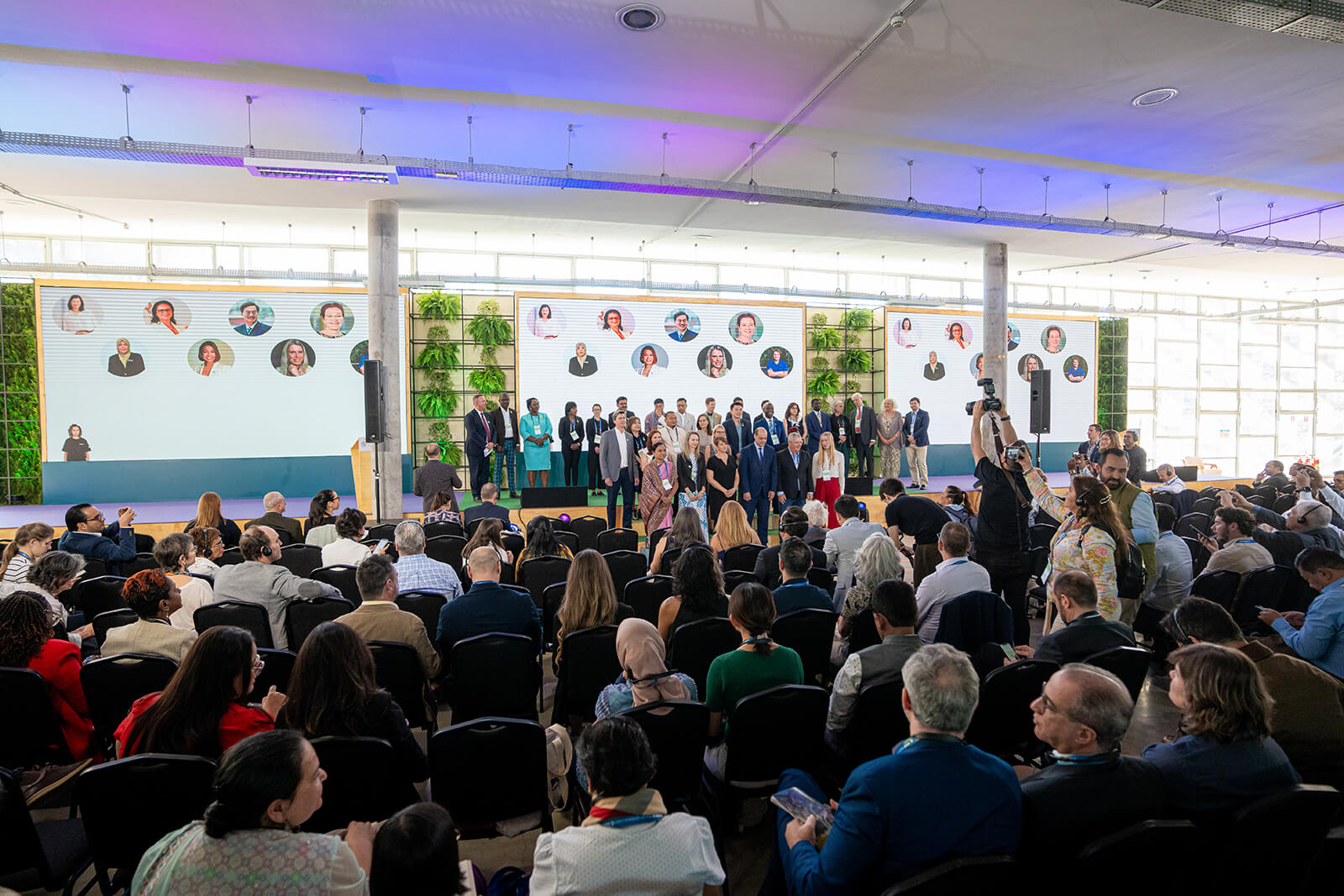
Over the past decade, sustainability advocates have drawn up global goals and targets to reaffirm commitments to the Sustainable Development Goals and the Urban Agenda as well as adopting a more holistic view of urbanisation, notable among them the Paris Climate Agreement and the Kunming-Montreal Biodiversity Framework. What the ICLEI highlights is the relevance of elevating local voices in driving this change. As the current ICLEI President and Mayor of Malmö, Sweden, Katrin Stjernfeldt Jammeh elaborated on this in the opening session of the Congress: “We need to put people at the centre of our work.”
The first step to affecting change is deliberation. Representatives convened in different panels and sessions over four days to discuss the path forward to a more sustainable ecosystem. Notably, a key focus area included science and innovation with the ICLEI Global Research & Innovation Symposium 2024, held on June 18. The first day started by reinforcing the role that global networks play in accelerating action on sustainable development by connecting cities, regions and communities. A Youth Manifesto was also signed during the opening ceremony. The document, which underscores youth discontent over inaction and political autonomy, included recommendations and actions for local governments and society in general drawn up by young people from different institutions. Day two’s plenary sessions focused on the theme Our Changing World, where member representatives and experts discussed how cities can leverage local initiatives to drive global impact and build climate-resilient communities worldwide through concrete examples.
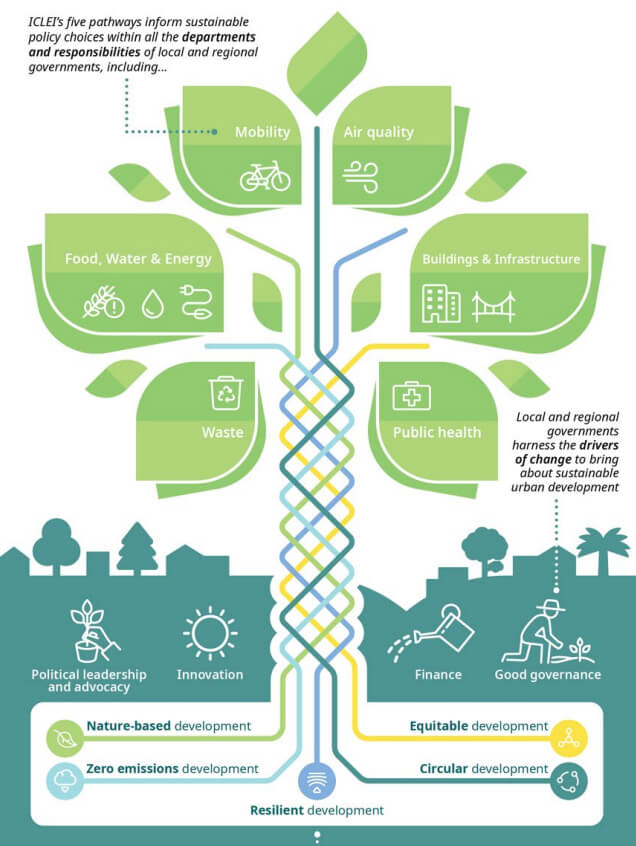
The Congress ended on a hopeful note with Gino Van Begin, Secretary General of ICLEI, announcing that the network is set to embark on 340 initiatives and programmes geared to support its members over the next three years. He also noted that since last June, 130 cities and regions have joined ICLEI, underscoring the power of this growing network and that there is hope in solidarity. This was also highlighted by Mayor Jammeh who spoke about more than 500 members of the ICLEI network declaring a climate emergency, over 400 adopting clear renewable energy targets and more than 25 committing to 100 per cent renewable energy.
The Congress and the ICLEI provide a clear agenda through its five interconnected pathways to sustainable development—Equitable Development, Zero Emission Development, Nature-based Development, Circular Development and Resilient Development. The knowledge-sharing platform it provides local governments not only enables cross-pollinated conversations but also highlights topics as diverse as AI to gender equity to biodiversity and how they may impact cities. The most crucial aspect of the body and what it represents is the fact that we can only combat this together by fostering networks and an ethics of community. Probing into this, STIR spoke to the current president of the body, who reinforced its goals and highlighted key issues that we can only closely look at through a grassroots lens. Below is an excerpt of the conversation.
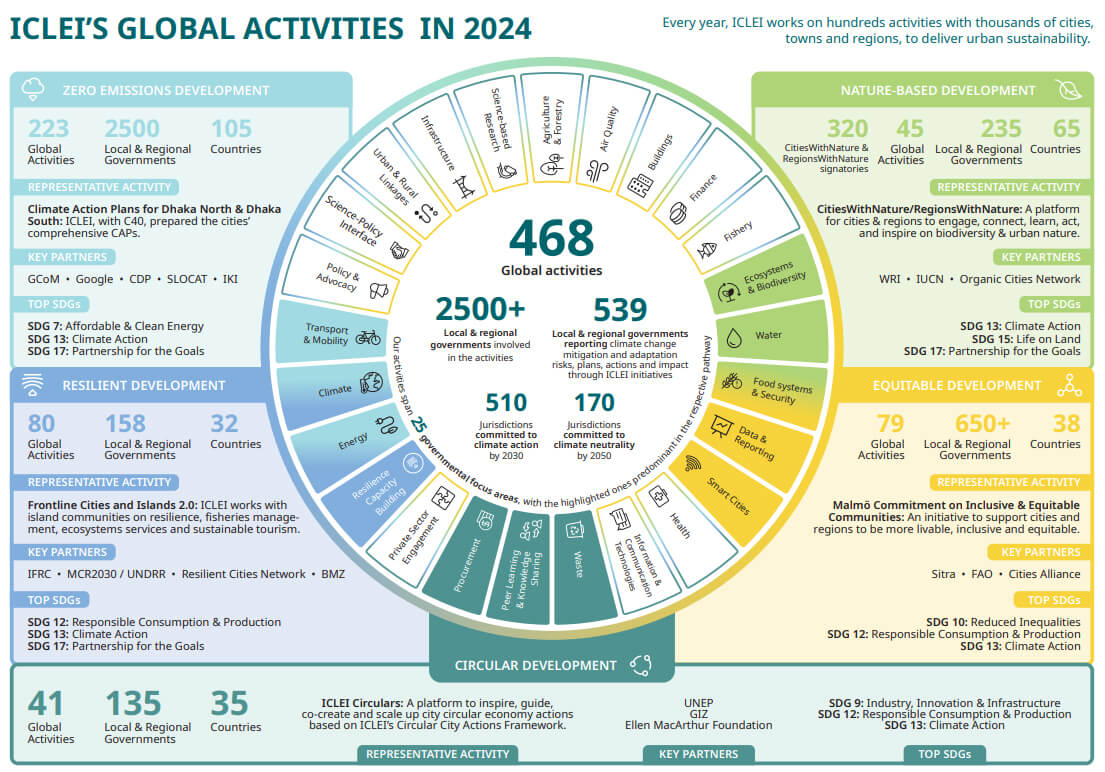
Mrinmayee Bhoot: Could you share a few insights from the deliberations during the conference? How can we map our path to a more sustainable 2030?
Mayor Katrin Stjernfeldt Jammeh: ICLEI is a strong global force and an important network that gives voice to the cities globally and the ICLEI World Congress just held in São Paulo reinforced my belief in ICLEI’s strategy towards zero emission, nature-based, equitable, resilient and circular development. Still, we have a steep hill to climb – as it stands, the world is on course to miss the objectives set by the Paris Agreement.
The world needs systemic change. Cities account for 70 per cent of the world’s greenhouse gas emissions, and the recent World Congress proved once again that the local level has the will and pragmatism to deliver it. We need to work hard to get more influence and more funding at the local level. Also, I believe that true urban sustainable development must be inclusive and affordable, otherwise, it’s not sustainable.
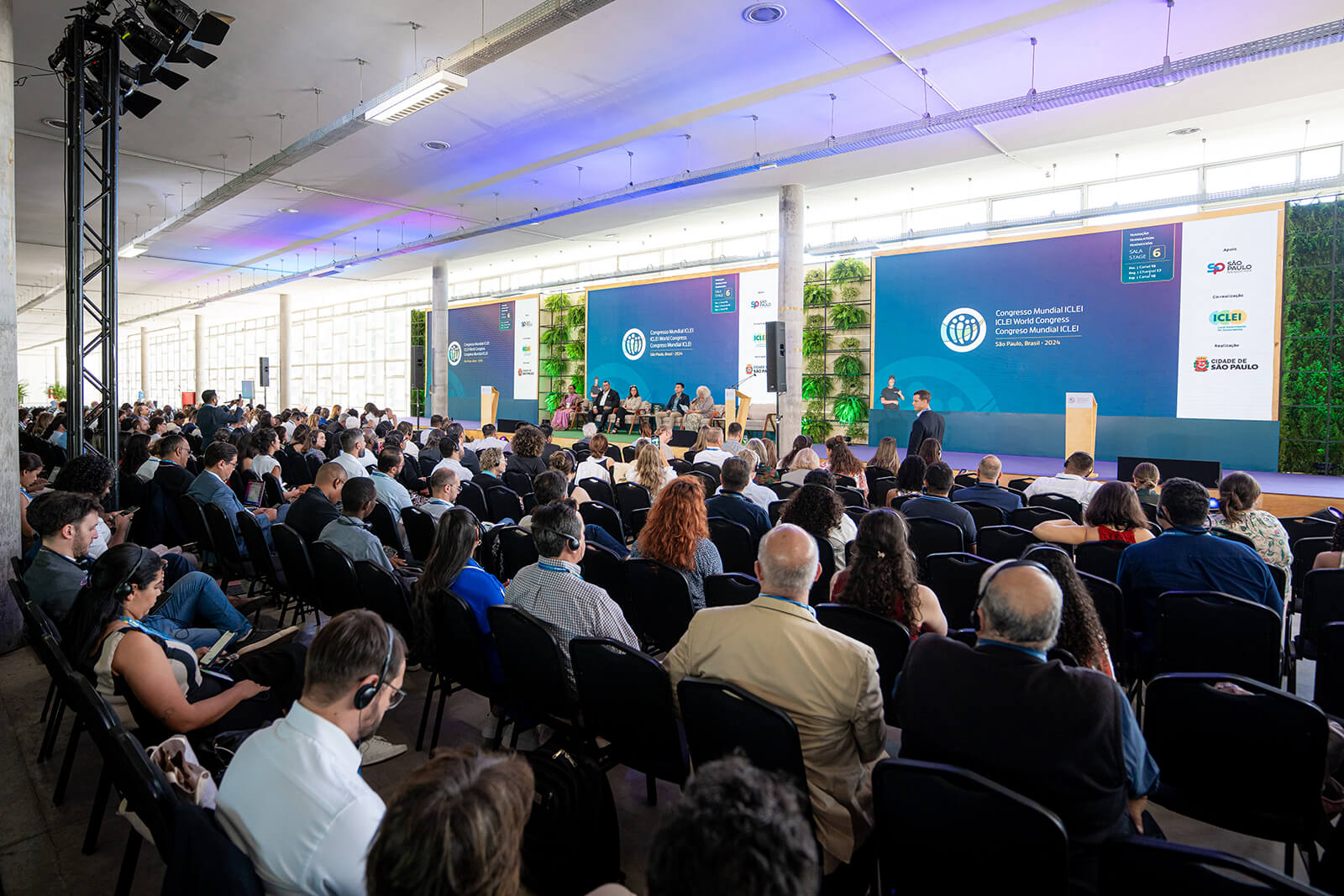
Mrinmayee: The multiple crises we are currently dealing with warrant a multi-level approach, as it is one of the guiding principles for Congress. And you’ve said before that cities are “the vanguard of tackling global issues on a local, national, and global level.” Could you elaborate on how cities can become actors in fighting global issues?
Mayor Jammeh: Cities are at the forefront of addressing global issues because our residents are directly impacted by the effects of the multiple crises we all face – rising costs of living, social inequality, climate change and economic instability. At the same time, cities are natural laboratories that foster innovative solutions, where we can implement and test new policies that can later be scaled up. However, local governments often lack the necessary funding and influence to implement comprehensive sustainability initiatives.
Additionally, when national governments step back from their commitments, our work gets even harder. Therefore, we need stronger frameworks for collaboration and communication, we need more influence and more funding at the local level and we need to apply pressure on our national governments to include a multilevel approach to sustainability.
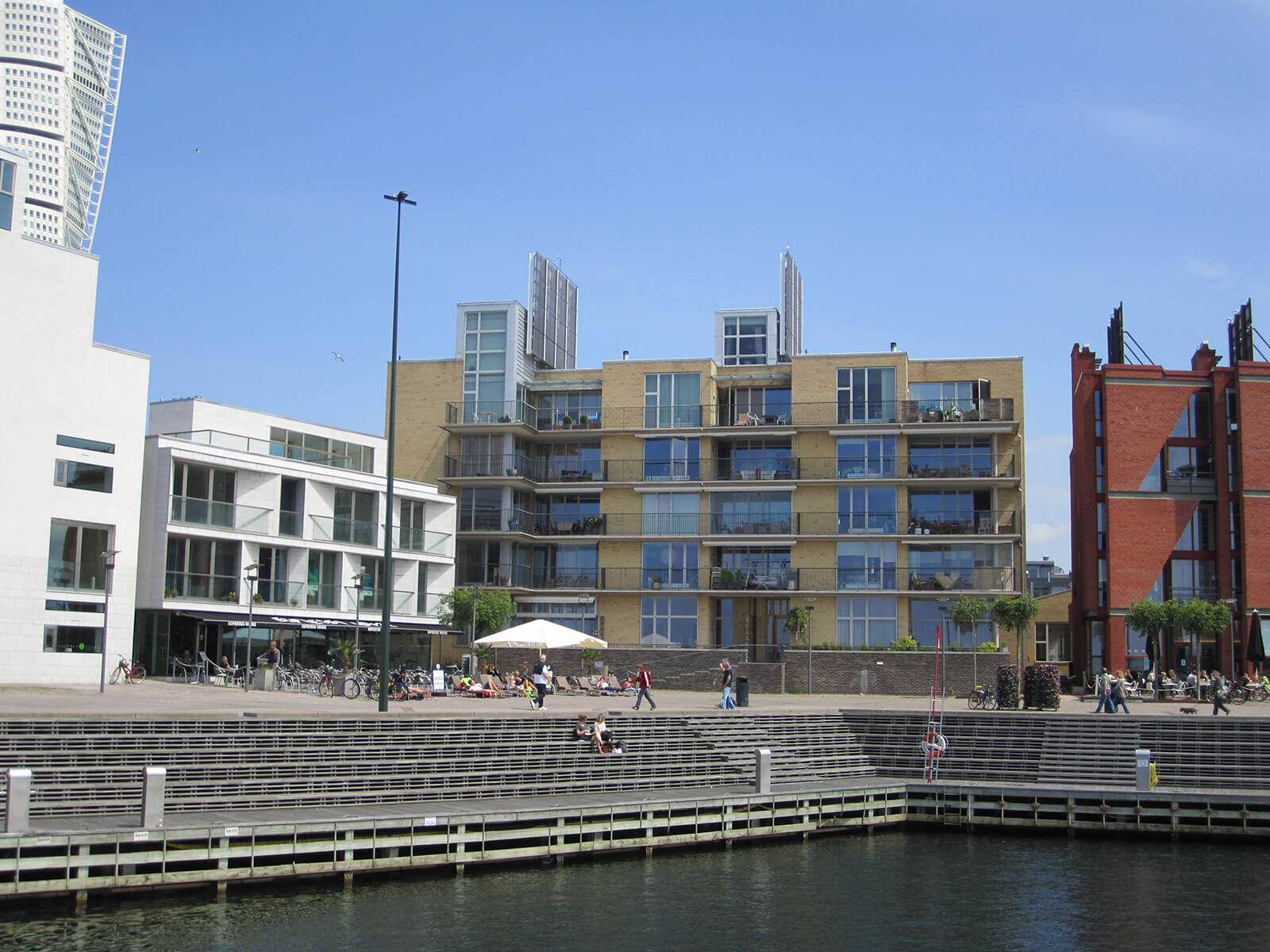
Mrinmayee: In one of your panels, you examined the collective goals of ICLEI and how they contribute to the global work of the climate and nature agendas, as well as broader global sustainability goals.
Thinking about the bigger picture, I’m wondering about the scales at which we operate when we talk about mitigation and resilience. How and where do you think we can begin to build resilience?
Mayor Jammeh: Building resilience begins with local community engagement and participation. The key word in Malmö’s transition is “together”, as this is the only way to become truly sustainable as a society. The City of Malmö has gone through a climate-smart transition and has collaborated with citizens, businesses and academia in hundreds of “climate contracts” to push the work forward together.
We have the ambition to become climate-neutral by 2030, a goal that is certainly within our reach. This can only be done by getting all actors and citizens on board. For example, the construction sector in Malmö, which accounts for a massive part of the local emissions, also aims to become climate-neutral by 2030.
Mrinmayee: I’d also like to dwell on the Malmö Commitment. Could you share key points and how you believe Malmö and other cities that were part of the previous Congress are implementing these goals?
Mayor Jammeh: The Malmö Commitment seeks to address one of the crucial questions of urban sustainability: How do we create sustainable and resilient societies without further increasing social inequalities? Inequality is a major challenge that we share with many other fast-growing cities all over the world. We all need to adapt to a changing climate, but not at the cost of increasing inequality within our communities.
In Malmö, we need to transform our already existing neighbourhoods in a climate-smart way that does not drive people already living there away. This is a challenge shared by cities across the world, and through the Malmö Commitment, we acknowledge and tackle these intertwined challenges.
Mrinmayee: What is vital with events such as this is how the actionable points and the strategies discussed can become translatable for other regions. Could you share your views on this?
Mayor Jammeh: Translating strategies from one context to another requires understanding the local conditions and adapting practices accordingly. In Malmö, we've successfully implemented green infrastructure projects that can inspire Sao Paulo and vice versa.
For example, our sustainable drainage systems can serve as a blueprint to address São Paulo's unique flooding challenges. By fostering a culture of knowledge sharing and collaboration within ICLEI and other organisations, we can learn from each other – but no solution can be copy-pasted; they must always consider the local context.
Mrinmayee: Since the Congress is so ardent about generating a shift towards sustainable development practices at the community level, I’d like to probe what action looks like at a local versus global scale. What differences exist and how do we adapt to them?
Mayor Jammeh: At the local level, sustainable development focuses directly on the community, the inhabitants that you meet every day. It is at the local level that we deliver true change. At the global level, the focus is on creating frameworks and policies that support these local initiatives, facilitating knowledge exchange and securing funding for large-scale projects. Early on, I adopted the philosophy that to be able to strengthen our city, I need to get involved at the national and international levels as well. Malmö has a long coastline and our area is made up of 50 per cent water—if we don’t make sure to push the agenda forward, our city—just like so many others—will be deeply affected by the changing climate.
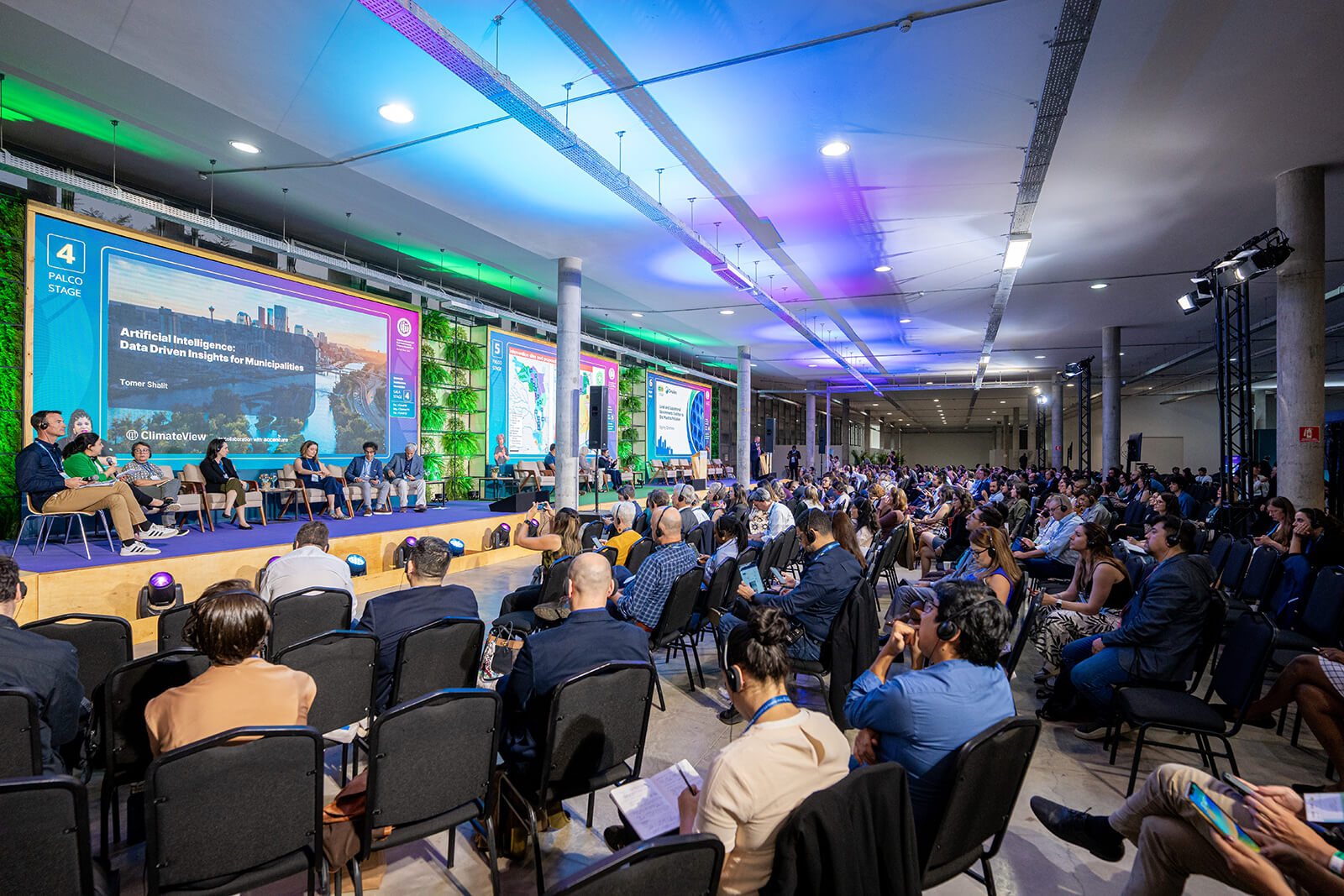
Mayor Jammeh’s statement during the closing plenary of the Congress should serve both as hope and reprimand. “The clear message of this ICLEI World Congress is that we urgently need to take responsibility for creating sustainable cities, towns and regions, even if sometimes it is hard and complex. The choices we make now will determine whether we can accelerate a fair and inclusive green transition. I’m fully convinced if we act as one determined ICLEI community, we can achieve sustainability.”
by Jerry Elengical Oct 08, 2025
An exhibition about a demolished Metabolist icon examines how the relationship between design and lived experience can influence readings of present architectural fragments.
by Anushka Sharma Oct 06, 2025
An exploration of how historic wisdom can enrich contemporary living, the Chinese designer transforms a former Suzhou courtyard into a poetic retreat.
by Bansari Paghdar Sep 25, 2025
Middle East Archive’s photobook Not Here Not There by Charbel AlKhoury features uncanny but surreal visuals of Lebanon amidst instability and political unrest between 2019 and 2021.
by Aarthi Mohan Sep 24, 2025
An exhibition by Ab Rogers at Sir John Soane’s Museum, London, retraced five decades of the celebrated architect’s design tenets that treated buildings as campaigns for change.
 surprise me!
surprise me!
make your fridays matter
SUBSCRIBEEnter your details to sign in
Don’t have an account?
Sign upOr you can sign in with
a single account for all
STIR platforms
All your bookmarks will be available across all your devices.
Stay STIRred
Already have an account?
Sign inOr you can sign up with
Tap on things that interests you.
Select the Conversation Category you would like to watch
Please enter your details and click submit.
Enter the 6-digit code sent at
Verification link sent to check your inbox or spam folder to complete sign up process



by Mrinmayee Bhoot | Published on : Jul 08, 2024
What do you think?